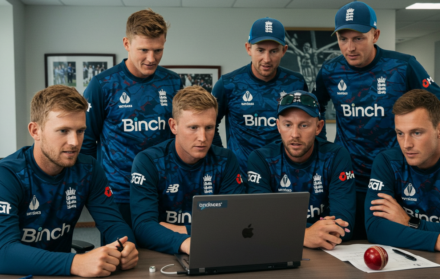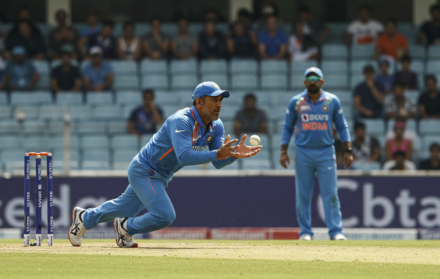
The Role of Coaches in Developing Young Cricketers
The role of coaches in developing young cricketers is pivotal in shaping the future stars of the game. Coaches not only impart technical skills but also instill the values of discipline, teamwork, and sportsmanship. At the grassroots level, coaches introduce children to the basic rules and scoring of cricket, ensuring they understand the game’s fundamental aspects.
One of the primary responsibilities of a coach is to teach children the proper techniques and skills required to excel in cricket. This involves detailed instruction on coaching techniques that are tailored to young players. These techniques help in building a strong foundation, which is crucial as they progress through different age groups and skill levels.
Coaches also play a significant role in organizing tournaments and leagues for children, providing them with the opportunity to apply their skills in a competitive environment. These experiences are invaluable for young cricketers as they learn to handle pressure and perform under different circumstances.
In addition to technical skills, coaches emphasize the importance of building confidence and self-esteem through cricket. They create an encouraging environment where children feel safe to take risks and make mistakes, fostering a growth mindset that is essential for long-term development.
Another critical aspect of coaching is addressing the mental aspects of cricket. Coaches help young cricketers develop resilience, focus, and a positive attitude towards the game. This mental training is just as important as physical training, as it prepares players to face challenges both on and off the field.
Furthermore, coaches ensure that cricket is accessible to everyone, promoting inclusivity and diversity within the sport. They work with children from various backgrounds, helping them to integrate into the cricket community and fostering a sense of belonging.
Lastly, the role of coaches extends to educating parents on how they can support their children’s cricketing journey. This includes guidance on selecting the right equipment, maintaining a balanced approach between academics and cricket, and encouraging a healthy lifestyle.
The role of coaches in developing young cricketers encompasses a wide range of responsibilities that go beyond the technical aspects of the game. They are mentors, educators, and supporters, playing a crucial part in nurturing the next generation of cricket talent.
Skill Development and Technical Training

The primary responsibility of a cricket coach is to develop the technical skills of young players. This involves teaching the fundamental techniques of batting, bowling, and fielding, ensuring that players build a strong foundation. Coaches design practice sessions that focus on improving these core skills through drills, exercises, and match simulations.
Batting techniques taught by coaches include proper stance, grip, and footwork. Young cricketers learn how to play various shots, such as drives, cuts, and pulls, and are trained to adapt their techniques to different types of deliveries. Coaches emphasize the importance of timing, hand-eye coordination, and shot selection, helping players develop consistency and confidence at the crease.
In bowling, coaches teach the mechanics of different bowling styles, including fast bowling, swing, seam, and spin. Young bowlers learn about grip, run-up, delivery stride, and follow-through. Coaches also focus on developing control and accuracy, teaching bowlers how to maintain a consistent line and length. Understanding the nuances of bowling, such as varying pace and using different angles, is also a key aspect of training.
Fielding skills are another critical area of focus. Coaches train young cricketers in catching, throwing, and ground fielding techniques. Drills to improve reflexes, agility, and coordination are regularly incorporated into practice sessions. Coaches also emphasize the importance of communication and teamwork in the field, teaching players to work together to prevent runs and take wickets.
Physical fitness is integral to skill development. Coaches design fitness programs that include strength training, cardiovascular exercises, and flexibility routines. These programs enhance players’ physical capabilities, making them more resilient and capable of performing at their best.
The role of coaches in skill development is crucial for young cricketers to progress in the sport. By providing structured and comprehensive training, coaches ensure that players develop the technical proficiency needed to succeed at higher levels of competition.
Mental Conditioning and Psychological Support
Beyond physical skills, cricket coaches play a vital role in the mental conditioning of young players. The psychological aspect of cricket is significant, as the game requires concentration, resilience, and strategic thinking. Coaches provide the support and guidance needed to develop these mental attributes.
One of the primary aspects of mental conditioning is building confidence. Coaches encourage young cricketers to believe in their abilities and trust their skills. Positive reinforcement and constructive feedback help players develop a growth mindset, enabling them to learn from mistakes and continuously improve.
Handling pressure is another crucial area where coaches provide support. Cricket matches, especially competitive ones, can be intense and stressful. Coaches teach players techniques to manage pressure, such as breathing exercises, visualization, and mindfulness. These techniques help players stay calm and focused, allowing them to perform well under challenging conditions.
Coaches also work on developing the mental toughness of young cricketers. This involves teaching them to stay motivated and determined, even in the face of setbacks. By fostering resilience, coaches help players overcome challenges and bounce back from disappointments, whether it’s recovering from a poor performance or dealing with injuries.
Strategic thinking and decision-making are key components of cricket. Coaches train players to analyze situations, assess risks, and make informed decisions on the field. This includes understanding the game plan, adapting to changing conditions, and executing strategies effectively. Coaches often use match simulations and tactical discussions to develop these skills.
Team dynamics and communication are essential for success in cricket. Coaches emphasize the importance of effective communication, leadership, and collaboration. They create a supportive environment where players can express themselves, share ideas, and work together towards common goals.
Overall, the mental conditioning provided by coaches helps young cricketers develop the psychological resilience and strategic acumen needed to excel in the sport. This holistic approach ensures that players are well-prepared to handle the mental demands of competitive cricket.
Fostering Sportsmanship and Ethical Values

Coaches play a crucial role in instilling sportsmanship and ethical values in young cricketers. These values are fundamental to the spirit of cricket and essential for the holistic development of players. By promoting fair play, respect, and integrity, coaches help shape the character of young athletes.
One of the primary lessons coaches impart is the importance of fair play. This involves teaching players to adhere to the rules of the game, play honestly, and avoid any form of cheating. Coaches emphasize that winning should not come at the expense of ethical conduct. By modeling and reinforcing these behaviors, coaches ensure that young cricketers understand and appreciate the importance of playing within the spirit of the game.
Respect is another key value taught by coaches. This includes respect for opponents, teammates, coaches, officials, and the game itself. Coaches encourage players to show sportsmanship by shaking hands with opponents, accepting umpires’ decisions without dissent, and supporting their teammates. Respect for opponents involves acknowledging their skills and efforts, regardless of the match outcome.
Integrity and honesty are fundamental values that coaches instill in young cricketers. This involves being truthful about one’s actions, taking responsibility for mistakes, and maintaining high standards of conduct both on and off the field. Coaches encourage players to be honest about their performances, admit when they are out, and avoid actions that could bring the game into disrepute.
Coaches also emphasize the importance of humility and graciousness in both victory and defeat. Young cricketers are taught to celebrate wins with modesty and handle losses with dignity. This involves congratulating opponents, reflecting on performances, and learning from experiences. Coaches help players understand that success is not just about winning but also about personal growth and development.
The values of sportsmanship and ethical conduct extend beyond the cricket field. Coaches encourage young cricketers to apply these principles in their everyday lives, promoting positive interactions and relationships. By fostering these values, coaches help young players develop into responsible and respectful individuals who contribute positively to society.
Creating a Positive Learning Environment
A positive learning environment is essential for the development of young cricketers, and coaches play a pivotal role in creating and maintaining this environment. A supportive and encouraging atmosphere enables players to learn, grow, and thrive.
One of the key elements of a positive learning environment is effective communication. Coaches foster open and honest communication with their players, ensuring that feedback is constructive and supportive. This helps players understand their strengths and areas for improvement, enabling them to work on their skills with confidence.
Encouragement and positive reinforcement are vital in building players’ self-esteem and motivation. Coaches celebrate players’ achievements, no matter how small, and provide reassurance during challenging times. This positive reinforcement helps young cricketers develop a love for the game and a desire to improve.
Individualized attention is another important aspect of a positive learning environment. Coaches recognize that each player is unique and may have different learning styles, strengths, and areas for development. By providing personalized coaching and tailored feedback, coaches ensure that each player receives the support they need to reach their full potential.
A positive learning environment also involves creating a sense of community and belonging within the team. Coaches encourage teamwork, cooperation, and mutual support among players. Team-building activities and social events help foster camaraderie and strengthen bonds, creating a cohesive and supportive team culture.
Coaches also prioritize the well-being of their players. This involves being attentive to their physical, emotional, and mental health. Coaches provide guidance on healthy lifestyle choices, injury prevention, and stress management. They also create an environment where players feel comfortable discussing any concerns or challenges they may face.
Inclusivity and respect for diversity are integral to a positive learning environment. Coaches promote an inclusive atmosphere where all players feel valued and respected, regardless of their background or skill level. This involves challenging any forms of discrimination or exclusion and fostering a culture of acceptance and respect.
By creating a positive learning environment, coaches help young cricketers develop a strong foundation for success. This environment enables players to learn effectively, build confidence, and develop a lifelong passion for the game.
Mentorship and Personal Development

Coaches serve as mentors to young cricketers, providing guidance and support that extends beyond the technical aspects of the game. Mentorship plays a crucial role in the personal development of young players, helping them navigate the challenges of adolescence and grow into well-rounded individuals.
Mentorship involves building strong and trusting relationships with players. Coaches take the time to understand each player’s personality, strengths, and aspirations. By establishing a rapport, coaches create a safe and supportive space where players feel comfortable seeking advice and sharing their concerns.
One of the key aspects of mentorship is providing career guidance and setting goals. Coaches help young cricketers set realistic and achievable goals, both in cricket and in their personal lives. This involves creating individualized development plans that outline the steps needed to achieve these goals. Coaches also provide guidance on career paths, helping players make informed decisions about their future.
Life skills development is another important aspect of mentorship. Coaches teach young cricketers essential life skills such as time management, discipline, and resilience. These skills are crucial for success both on and off the field. Coaches also provide guidance on managing academic responsibilities, balancing cricket with studies, and making healthy lifestyle choices.
Emotional support is a vital component of mentorship. Coaches provide a listening ear and offer encouragement during difficult times. They help players build self-confidence, manage stress, and develop coping strategies. By providing emotional support, coaches help young cricketers navigate the challenges of adolescence and build mental resilience.
Coaches also serve as role models, demonstrating positive behaviors and values. By modeling integrity, respect, and sportsmanship, coaches inspire young players to emulate these qualities. This positive influence helps shape the character and values of young cricketers, contributing to their overall personal development.
Mentorship in cricket extends to providing opportunities for leadership development. Coaches encourage players to take on leadership roles within the team, such as captaincy or mentoring younger teammates. These experiences help young cricketers develop leadership skills, build confidence, and learn the importance of responsibility and teamwork.
Overall, mentorship provided by coaches plays a crucial role in the personal development of young cricketers. By offering guidance, support, and positive role modeling, coaches help players grow into confident, responsible, and well-rounded individuals.
Adapting to Modern Coaching Techniques
The role of coaches in developing young cricketers has evolved significantly with the advent of modern coaching techniques and technology. Coaches must continuously adapt and incorporate these innovations to stay effective and provide the best possible training for their players.
One of the key advancements in modern coaching is the use of video analysis. Coaches use video footage to analyze players’ techniques, identify areas for improvement, and provide detailed feedback. Video analysis allows coaches to break down complex movements and offer visual insights that are easier for players to understand and implement.
Technology has also introduced advanced training tools and equipment. Bowling machines, for example, allow coaches to simulate various types of deliveries, helping batsmen practice against different bowling styles. Motion sensors and wearable devices provide data on players’ movements, helping coaches optimize training and prevent injuries.
Data analytics has become an integral part of modern coaching. Coaches use data to track players’ performance metrics, such as batting averages, bowling speeds, and fielding efficiency. This data-driven approach enables coaches to make informed decisions, tailor training programs, and monitor progress over time.
The use of software and apps has revolutionized the way coaches plan and manage training sessions. Coaches can create detailed training plans, track attendance, and record performance data using digital tools. These platforms also facilitate communication between coaches, players, and parents, ensuring that everyone is aligned and informed.
Sports psychology and mental conditioning are increasingly recognized as essential components of modern coaching. Coaches work with sports psychologists to develop mental training programs that enhance focus, confidence, and resilience. Techniques such as visualization, mindfulness, and goal setting are incorporated into training routines to help players perform at their best under pressure.
Nutrition and fitness are critical areas where modern coaching techniques have made a significant impact. Coaches collaborate with nutritionists and fitness trainers to develop personalized diet and exercise plans for players. These plans ensure that players are in peak physical condition and have the energy and stamina required for competitive cricket.
Coaches also embrace innovative teaching methods to engage and motivate young cricketers. Interactive drills, gamified training sessions, and creative exercises make learning fun and enjoyable. By keeping training sessions dynamic and interesting, coaches help players stay motivated and enthusiastic about their development.
Adaptability is key to successful coaching in the modern era. Coaches must stay updated with the latest trends, research, and technological advancements in cricket. Continuous professional development, attending coaching workshops, and collaborating with other coaches are essential for staying effective and relevant.
The adaptation to modern coaching techniques has significantly enhanced the role of coaches in developing young cricketers. By leveraging technology, data, and innovative training methods, coaches can provide more effective, personalized, and engaging training, helping young players reach their full potential.
The Crucial Role of Coaches in Developing Young Cricketers: Nurturing Future Stars

The role of coaches in developing young cricketers is multifaceted and crucial for the holistic development of players. Coaches are instrumental in teaching technical skills, providing mental conditioning, fostering sportsmanship, creating a positive learning environment, offering mentorship, and adapting to modern coaching techniques. Their comprehensive approach ensures that young athletes are not only skilled on the field but also well-rounded individuals off it.
By focusing on skill development, coaches ensure that young cricketers build a strong foundation and develop the technical proficiency needed for success. Through rigorous training sessions, detailed feedback, and personalized drills, coaches help players master the essential skills of batting, bowling, and fielding. This technical grounding is vital for young cricketers to excel and progress in the sport.
Mental conditioning provided by coaches helps players develop confidence, resilience, and strategic thinking, enabling them to perform well under pressure. Coaches teach young athletes how to maintain focus, handle setbacks, and strategize effectively during matches. This mental fortitude is essential for coping with the highs and lows of competitive sports, ensuring that players remain motivated and driven.
Coaches also play a vital role in instilling values of sportsmanship and ethical conduct, shaping the character and integrity of young cricketers. They emphasize the importance of fair play, respect for opponents, and adherence to rules. By promoting these values, coaches help young players develop a strong moral compass, which is crucial for maintaining the true spirit of the game.
Creating a positive learning environment is another key responsibility of coaches. They foster a supportive atmosphere where players feel encouraged, valued, and motivated. This environment nurtures enthusiasm and passion for the sport, making training sessions enjoyable and productive. A positive learning space also helps young cricketers build strong team dynamics and camaraderie, which are essential for success both on and off the field.
Mentorship offered by coaches extends beyond the cricket field, providing guidance on personal development, career planning, and life skills. Coaches often serve as role models, imparting lessons on discipline, perseverance, and leadership. This mentorship helps young cricketers navigate challenges in their personal lives and make informed decisions about their future.
Adapting to modern coaching techniques allows coaches to leverage technology, data, and innovative methods to provide effective and engaging training. Using tools like video analysis, performance tracking apps, and virtual reality simulations, coaches can offer precise feedback and tailor training programs to meet individual needs. This modern approach ensures that young cricketers stay ahead of the curve and continually improve their skills.
The comprehensive support and guidance provided by coaches help young cricketers develop into well-rounded individuals who are not only skilled athletes but also responsible and respectful members of society. The role of coaches is essential in nurturing the future stars of cricket and ensuring that the true spirit of the game continues to thrive. Through their dedication and expertise, coaches play a pivotal part in shaping the next generation of cricket talent and fostering a lifelong love for the sport.




